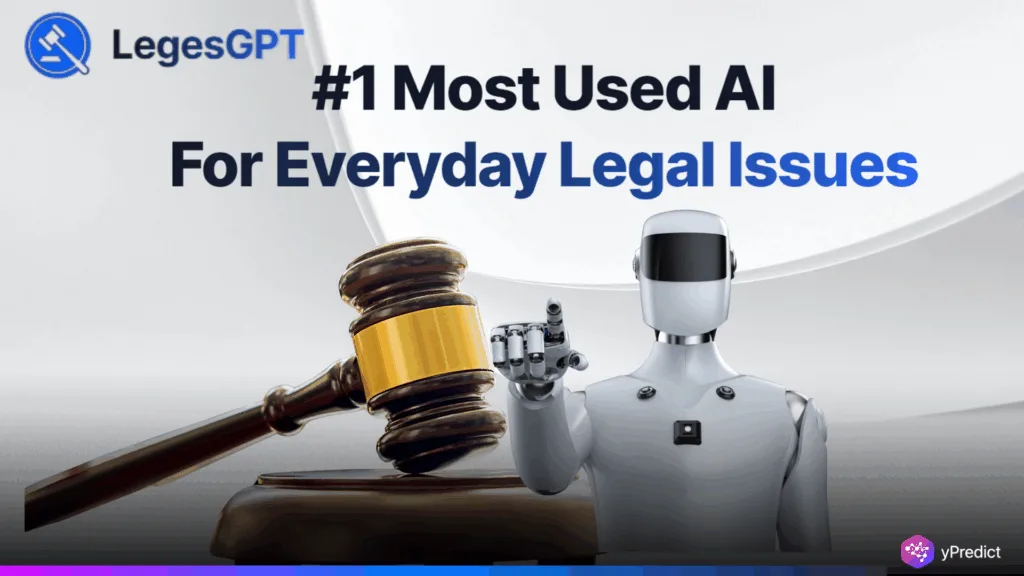
Legal research is no longer limited to manual labor or slowness. LegesGPT, an AI legal assistant, is changing the way attorneys practice law in 2025. It improves drafting, expedites research, and identifies contract risks in a matter of minutes. Additionally, over 15,000 lawyers use it. Legal engineers developed LegesGPT, which provides jurisdiction-specific results, cited sources, and reasoning on par with that of experienced lawyers.
Revolutionizing Legal Workflows with AI Legal Assistant
Lawyers are no longer confined to antiquated research tools or paywalls. They now use smart solutions like the AI legal assistant LegesGPT to work at scale, with greater accuracy and speed. Here are six strong points and practical applications:
1. Rapid Legal Research
LegesGPT provides results in less than 30 seconds as opposed to 45 minutes spent searching through databases. For instance, three wrongful termination cases involving off-duty behavior in the US soon surfaced, each with complete citations. Additionally, this legal tech update removes subscription barriers and expensive delays.
2. Automated Contract Risk Detection
When a SaaS contract was uploaded into LegesGPT, seven problems were found. These issues include unclear indemnity provisions and a deficiency of language about data security. Additionally, it noted risks and recommended revised clauses to strengthen security. This level of contract analysis assists legal teams in resolving issues before they become more serious.
3. Brief Drafting with Citations
LegesGPT uses recent case law to draft full legal briefs. A defense lawyer used it to write a 1,000-word motion with three state-specific citations. Tasks that used to take hours to complete now only take minutes, freeing up time for deeper legal strategy.
4. Legal Reasoning Using Scenarios
Ask it a question to obtain a comprehensive legal opinion. LegesGPT provided a 300-word legal response referencing pertinent statutes in response to a California employment scenario prompt. Additionally, its logic was comparable or even superior to that of many junior lawyers.
5. Case Law by Jurisdiction
Looking for state-specific rulings? LegesGPT is used to filter the results by jurisdiction. Additionally, it helped a New York employment lawyer find specialized labor decisions that had previously been hidden in inaccessible databases. This legal tech update also makes every step more accurate.
6. Smarter Contract Analysis at Scale
LegesGPT easily manages bulk contract analysis. A legal operations team expedited its M&A process by reducing review time by 80%. Thus, this tool makes extensive document reviews easier, whether they are for vendor contracts or NDAs.
The Future Path of AI in Legal Work
LegesGPT is powered by a dynamic AI engine that is updated in real time. Furthermore, it has been trained on millions of court records. It was developed with input from lawyers and is useful for companies of all kinds. This is because it prioritizes data protection, clarity, and compliance.
LegesGPT intends to integrate with practice tools and legal CRMs in the future. Automated negotiation suggestions and multilingual capabilities are possible future features. Additionally, the AI legal assistant is rapidly evolving into a crucial co-counsel due to its growing adoption.
Is AI Legal Assistant the New Legal Standard
Organizations that use LegesGPT and similar tools are outperforming manual-intensive methods. AI improves corporate law, compliance, and litigation by increasing accuracy, reducing costs, and increasing efficiency. The legal industry is thus entering a smarter and quicker era since AI can conduct extensive research, analysis, and drafting.






